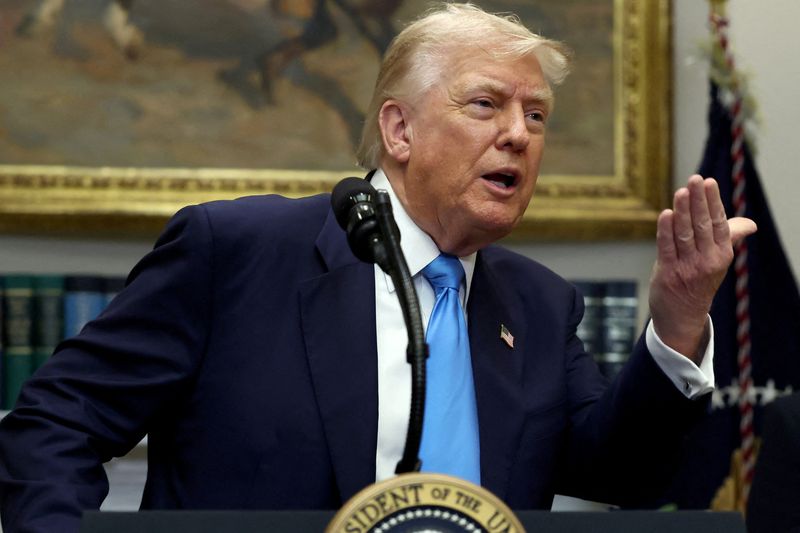U.S. stocks mixed; investors digest economic data as Nvidia weighs
Investing.com-- U.S. President Donald Trump said fiscal revenue from his trade tariffs is set to “skyrocket” in the coming months as inventory levels among local importers run dry.
Trump said in a Truth.Social post that local businesses had stocked up on inventories to sidestep his tariffs in the near-term. But those inventory levels were now “wearing thin,” which he said will result in businesses paying tariffs on more goods.
“...soon Tariffs will be paid on everything they apply to, without avoidance, and the amounts payable to the USA will SKYROCKET,” Trump said.
Trump also added that he was looking forward to the Supreme Court’s decision on his tariffs, as the country’s top court examines the legality of the emergency powers used by Trump to apply his tariffs.
Trump has long touted the claim that his trade tariffs will bring in unprecedented amounts of fiscal revenue, which will then be deployed towards clearing the government’s fiscal deficit. Trump had also raised the possibility of paying a tariff dividend to U.S. citizens from the income.
The U.S. Treasury’s final monthly statement the fiscal year to September 30 2025 showed the federal government collecting $195 billion in customs duties the year, more than 250% of that collected in 2024, as Trump’s tariffs took effect.
But analysts questioned just how much of a dent this would make in the government budget deficit in the near-term, which totaled about $1.8 trillion in 2025.
The Committee for a Responsible Federal Budget, a non-partisan think tank, said in a recent post that Trump’s tariffs, at current levels, will raise about $3 trillion through 2035. While this does stand to offset a big portion of government spending, the think tank warned of changes in policy, as well as potential legal challenges to the tariffs.
Washington-based think tank the Tax Foundation warned that Trump’s tariffs were unlikely to be sufficient to fund a dividend payout, at least in 2025 and 2026.
Trump’s tariffs have also been criticized for potentially driving up domestic inflation. The President recently signed orders to exempt several food and agricultural imports from his tariffs, amid concerns over their impact on food prices.
